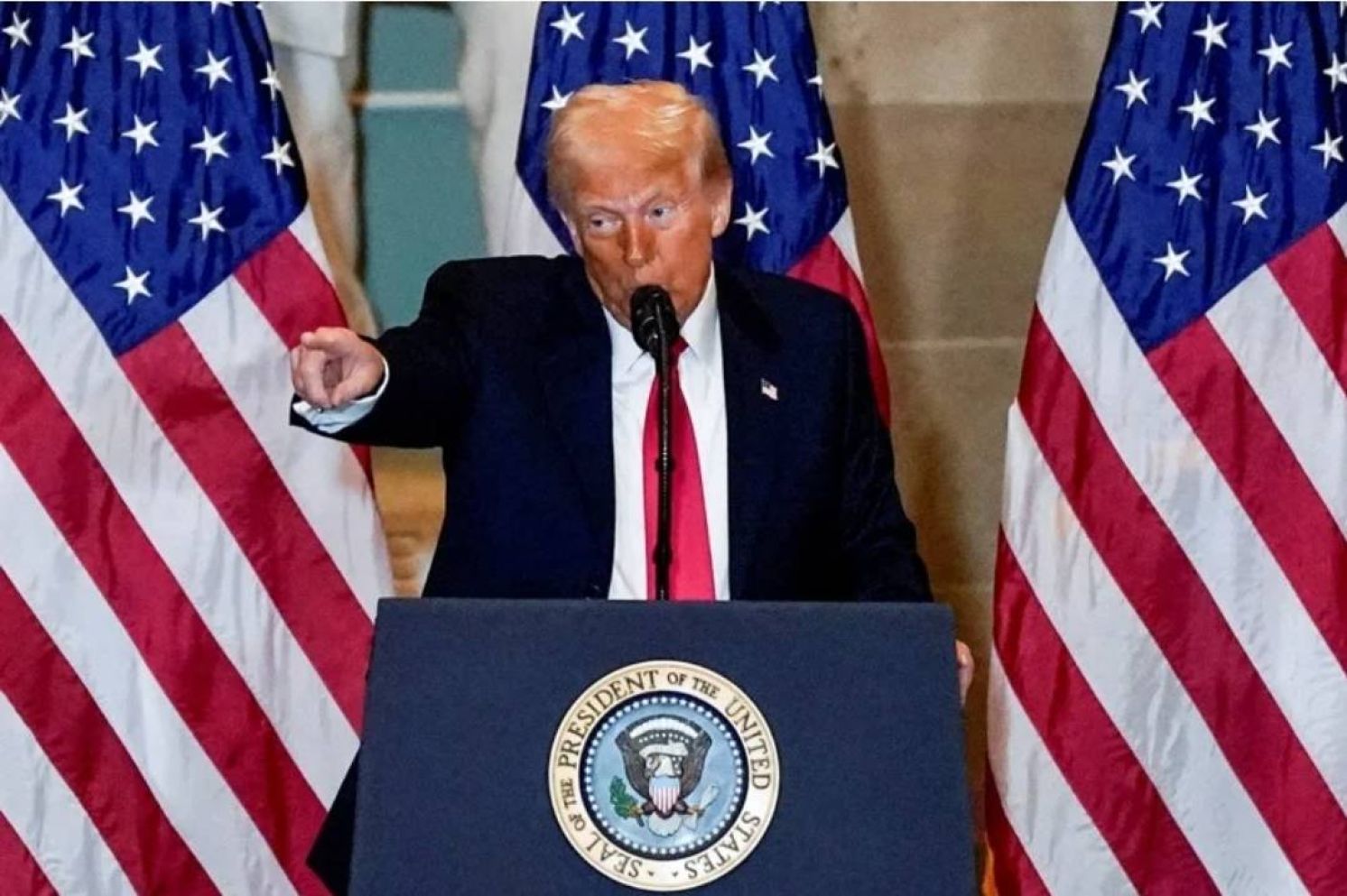
In-Depth Assessment of Tariffs' Impact on Taiwan's Economy
The Storm Media Commentary, February 5, 2025
President Donald Trump of the United States imposed tariffs on Canada, China, and Mexico as expected but later postponed the Canada and Mexico tariffs by a month. Initially, President Trump stated, "Tariffs are not a negotiation tool; they are purely an economic issue. We face significant trade deficits with these three countries." Reviewing U.S.-Taiwan trade records reveals that last year, Taiwan exported $111.37 billion to the United States, enjoying a trade surplus of $64.88 billion. Consequently, the threat of American tariffs is gradually closing in on us.
On a separate front, Chinese startup DeepSeek's launch of the DeepSeek-R1 has shocked the global market with its cost-efficiency, causing NVIDIA's stock price to plunge by 16.9 percent last week, wiping out over $600 billion in market value. Similarly, TSMC's American Depositary Receipts (ADR) saw a 13.3 percent decline. This groundbreaking development by DeepSeek has prompted a key question: Will the world's demand for high-end GPUs increase or decrease as AI production efficiency improves? What will be the repercussions for NVIDIA, the Taiwan Semiconductor Manufacturing Company (TSMC), and Taiwan?
Amid these turbulent global conditions, the Taiwan stock market saw TSMC's shares drop by 5.72 percent when trading resumed after the Lunar New Year, with multiple stocks linked to NVIDIA hitting their lower price limits. The market closed with an 830-point decline, marking the fourth-largest single-day drop on record. Therefore, discussing the impact of DeepSeek's technological advancements and tariffs on Taiwan has become both essential and timely.
If President Trump were to impose a 10 percent tariff on all Taiwanese exports to the United States, based on 2024 statistics, the United States would collect $11.137 billion in additional tariff revenue, representing 1.4 percent of Taiwan's gross domestic product (GDP). This figure has two key implications:
- Maximum Economic Loss: If Taiwanese exporters were to absorb the entirety of the tariff costs, GDP would shrink by 1.4 percent—an extreme scenario. However, since tariffs are often partially or fully borne by U.S. importers, the actual loss would be less than 1.4 percent of GDP.
- Escalated Scenario: If tariffs were increased to 60 percent, the maximum potential loss would rise sixfold to 8.4 percent, amounting to NT$2.2 trillion (about US$67.1 billion), equivalent to Taiwan's central government budget two years ago.
To refine these estimates, a large-scale survey conducted by the Taiwan External Trade Development Council late last year found that among 2,500 firms interviewed, 20.5 percent said they would fully absorb any increased tariff costs, 67.3 percent would absorb part of the costs, and 12.2 percent would absorb none. Applying these proportions, a 10 percent tariff increase would likely reduce Taiwan's GDP by 0.75 percent, equivalent to NT$198.6 billion (about US$6 billion). Though a rough estimate, this figure is credible enough to serve as a reference for fiscal and economic policymaking.
Regarding technological issues, DeepSeek's breakthrough in computational efficiency has triggered a potential revolution in the AI industry. Two competing theories have emerged concerning the future demand for high-end GPUs. One view argues that efficiency improvements reduce the need for GPUs, leading to declining demand and negative impacts on companies like NVIDIA and TSMC. However, British economist William Stanley Jevons posited in 1865 that improvements in coal efficiency paradoxically increased coal consumption, a phenomenon known as the Jevons Paradox. By this reasoning, NVIDIA and TSMC may still benefit.
The Jevons Paradox suggests that while efficiency reduces input needs, it can also stimulate greater demand, depending on the relative strength of these opposing effects. Most leaders in the tech industry favor the Jevons perspective, asserting that DeepSeek's innovations will ultimately benefit the AI sector. However, a recent article in The Economist presented a pessimistic view, arguing that the rebound effect is insufficient to validate the Jevons Paradox in AI.
The reasoning is straightforward: According to the U.S. Census Bureau, only 5 percent of American businesses currently use AI, and only 7 percent plan to adopt it in the future. Many find AI difficult to implement or irrelevant to their business operations. Without widespread adoption, the conditions for a strong rebound effect have yet to materialize. As a result, both GPU and energy demand may shrink, reducing the need for data centers and causing declines in related stock prices. In this context, NVIDIA and TSMC may indeed face trouble.
Before President Trump took office, Taiwan's Directorate-General of Budget, Accounting, and Statistics, along with various research institutions, made optimistic forecasts for Taiwan's 2025 economic growth. However, these projections were swiftly overturned once tariff conflicts erupted. On the first day of the trade war, global stock markets fell, currencies depreciated against the U.S. dollar, and gold prices hit record highs.
An economic study once observed: "When a country's economy is poor, the incumbent president is unlikely to win re-election. Conversely, a re-elected president typically presides over a strong economy. Voters, however, often cannot discern whether good economic conditions are due to sound presidential policies or favorable global economic trends." In other words, a robust international economy can enable even mediocre presidents to secure re-election, whereas a downturn may unseat even the most competent leaders. With President Trump's economic policies continuing to disrupt global markets, can any government afford to take economic governance lightly?
The author formerly served as vice premier, chairman of the Financial Supervisory Commission, chairman of the Taiwan Stock Exchange, and chairman of Taiwan Cooperative Financial Holding.
From: https://www.storm.mg/article/5318152
〈Back to Taiwan Weekly Newsletter〉